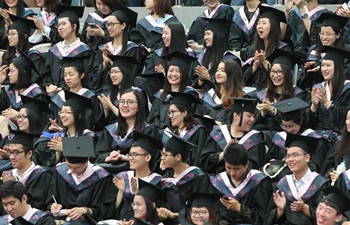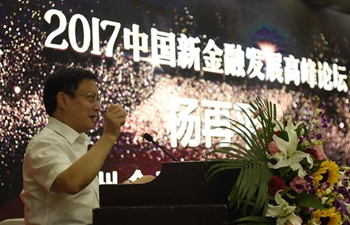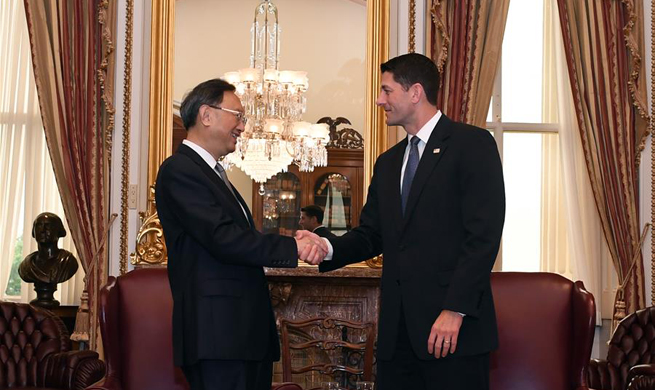BEIJING, June 23 (Xinhua) -- China's lawmakers Friday deliberated a draft law on public libraries.
The draft was submitted to the National People's Congress (NPC) Standing Committee for the first reading, at the start of its bi-monthly session, which runs until Tuesday.
Most lawmakers on the NPC Standing Committee made favorable comments and raised suggestions about the draft. They said that as gateways to knowledge and culture, public libraries were important in providing resources for learning and education.
The draft law says that public libraries should have juvenile and children's reading areas, with instructors to guide and educate.
During the group deliberation Friday, Shen Yueyue, vice chair of the Standing Committee of the NPC, suggested that public libraries should strengthen cooperation with elementary and secondary schools and share their reading resources with students.
Zhu Shanping, an NPC deputy, said that she supported the idea of local governments establishing reading rooms for urban and rural residents.
"I hope that local governments, together with the Ministry of Culture and the Ministry of Finance, can allocate special funds in establishing community and township libraries," Zhu said.
According to the Ministry of Culture, a network of libraries covering both urban and rural areas had 838 million books around the country at the end of 2015.
The draft also says that public libraries should provide free services such as lending and data inquiries, and organize public lectures, training and exhibitions.
The new functions of government-run public libraries, such as digital resources and online services, are also included in the draft.
Yang Zhen, a member of the NPC Standing Committee, pointed out that buying databases was expensive for universities and they should charge an extra fee for readers, citing a bylaw encouraging schools and academies to open their libraries to the public.
Uzhitu, another member of the committee, suggested that the law should be more clear about the favorable policies, such as land use or taxation to attract more social resources for building libraries.
China has more than 3,100 government-run libraries and around 50 public libraries set up by individuals, enterprises and public institutions, social groups and other organizations, said Chinese Culture Minister Luo Shugang.
Many major developed countries have legislation to boost reading.
The United States introduced the Reading Excellence Act in 1998 and the No Child Left Behind Act in 2002. The Republic of Korea introduced the Reading Culture Promoting Act in 2006.

















